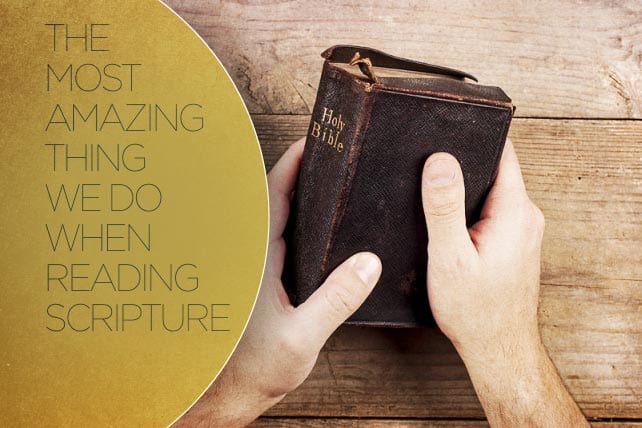“Whosoever will, let him take of the water of life freely” (Revelation 22:17).
“Whosoever surely meaneth me.” —Gospel song by James E. McConnell, 1910.
“He included me.” —Gospel song by Johnson Oatman. 1909.
Every Christian I know does this, and I do it too. And yet there seems to be no easy explanation for it.
In Scripture, we will be reading where God is telling Israel how much He loves them, how He has loved them from the first, how His love is endless and that He has big plans for them, and what do we do? We copy off those words and plaster them around the house, memorize them and write them into songs of inspiration. We put them on bumper stickers and coffee mugs and t-shirts, and we build sermons around them.
We revel in those words.
We do this not because we are so impressed by God’s love of Israel nor touched by their closeness. We do it for another overwhelming reason.
We insert ourselves into the story.
We interpret that Scripture as God saying He loves us that much.
And I find that truly astounding.
Untold numbers of Christians claim as their own personal word from Heaven something God said to Israel in Babylonian exile, something meant both to rebuke their presumptions and calm their anxieties. “I know the plans I have for you, saith the Lord. Plans for your shalom and not for destruction, to give you a future and a hope.” You love Jeremiah 29:11 the same way the rest of us do.
It’s a great promise, unlike anything else in all the Bible.
How did we come to this, appropriating to ourselves a promise made to another people in an ancient time and a foreign culture? Jeremiah lived in the 6th century B.C., and yet his words may as well be published in this morning’s New Orleans Advocate or delivered in today’s mail.
The text that awakened me two hours ago was given about the same time to those people needing reassurance that God was not finished with them yet. “I have loved you with an everlasting love” (Jeremiah 31:3).
Then, there is this from Isaiah 43:1, delivered nearly two centuries earlier: “Do not fear, for I have redeemed you; I have called you by name and you are Mine.”
God’s people today read that and conclude He is talking to us in so many words.
And He is.
That’s the amazing thing about it.
And we have this: “Do not fear for I am with you; do not be afraid for I am your God. I will strengthen you; I will help you. I will hold on to you with my righteous right hand” (Isaiah 41:10).
Was God speaking to His people in the 8th century B.C., a people called Hebrews, or to His people called Christians in A.D. 2015?
We answer with a hearty, “Yes! Both!”
As young Christians, we were told that in reading John 3:16 we should insert our own names, making it read, “For God so loved (my name), He gave His only begotten Son, that if (my name) believeth in Him, (my name) should not perish but have everlasting life.”
The logical question—the one no one ever seems to ask—is how is it that we appropriate these promises to ourselves? How did this happen?
Are we being presumptuous? After all …












